Alumni will go on to successful careers as:
- Applications engineer
- Assistant project engineer
- Designer
- Development engineer
- Field engineer
- Product engineer
- Project engineer
- Research and development engineer
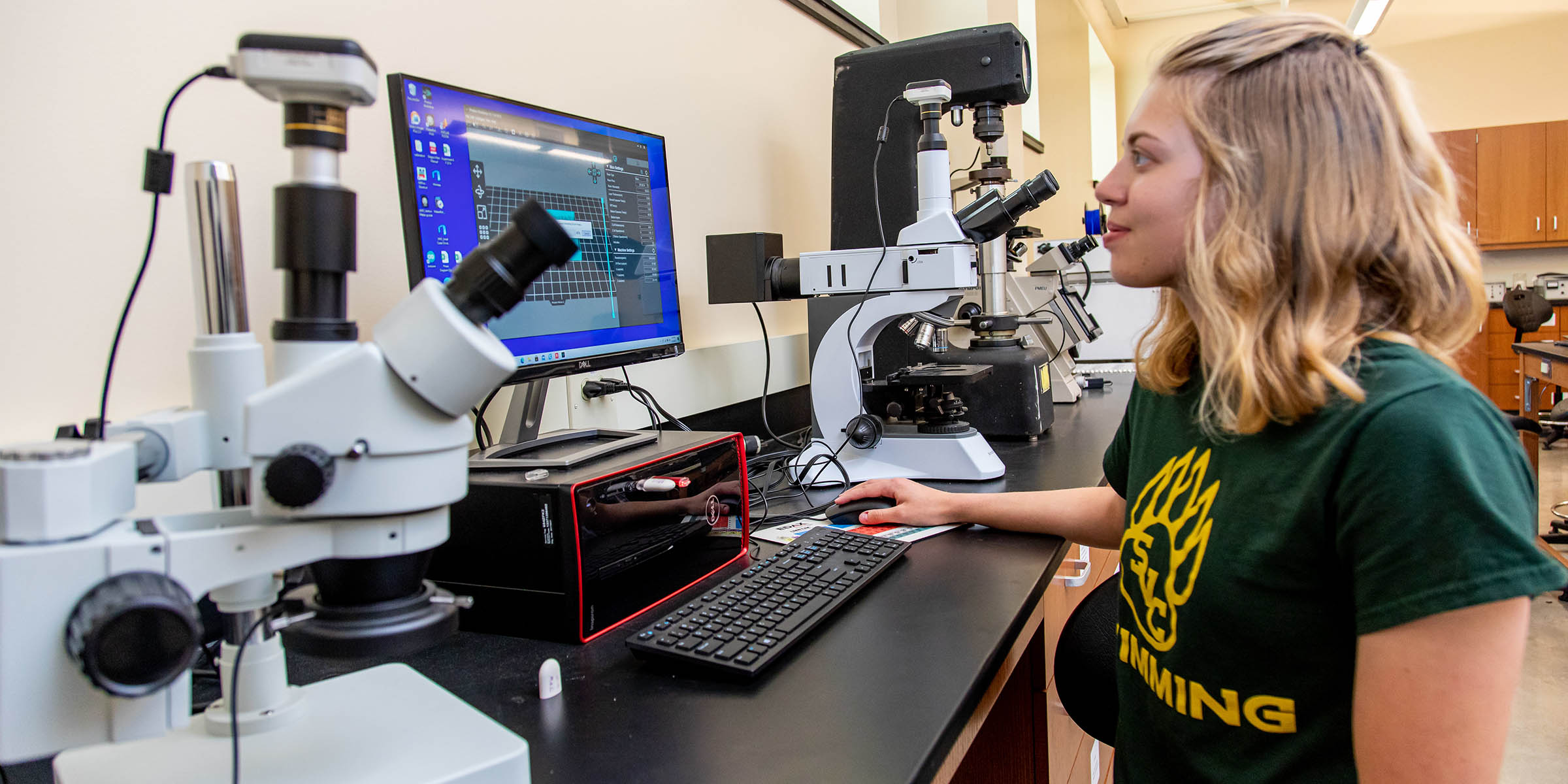
 Our engineering program provides a strong foundation in science, mathematics, and engineering principles, integrating technical skills with a broad liberal arts education. Students earning an engineering degree will also complete a math minor and specialize in concentrations like chemical, environmental, materials, or mechanical engineering through required courses, technical electives, and a capstone project. With significant research opportunities, you can collaborate with faculty on cutting-edge projects, making a meaningful impact in the engineering world. Our program is accredited by the Engineering Accreditation Commission of ABET, under the commission’s General Criteria with no applicable program criteria, ensuring that you'll graduate with a degree that employers respect and recognize worldwide.
Our engineering program provides a strong foundation in science, mathematics, and engineering principles, integrating technical skills with a broad liberal arts education. Students earning an engineering degree will also complete a math minor and specialize in concentrations like chemical, environmental, materials, or mechanical engineering through required courses, technical electives, and a capstone project. With significant research opportunities, you can collaborate with faculty on cutting-edge projects, making a meaningful impact in the engineering world. Our program is accredited by the Engineering Accreditation Commission of ABET, under the commission’s General Criteria with no applicable program criteria, ensuring that you'll graduate with a degree that employers respect and recognize worldwide.
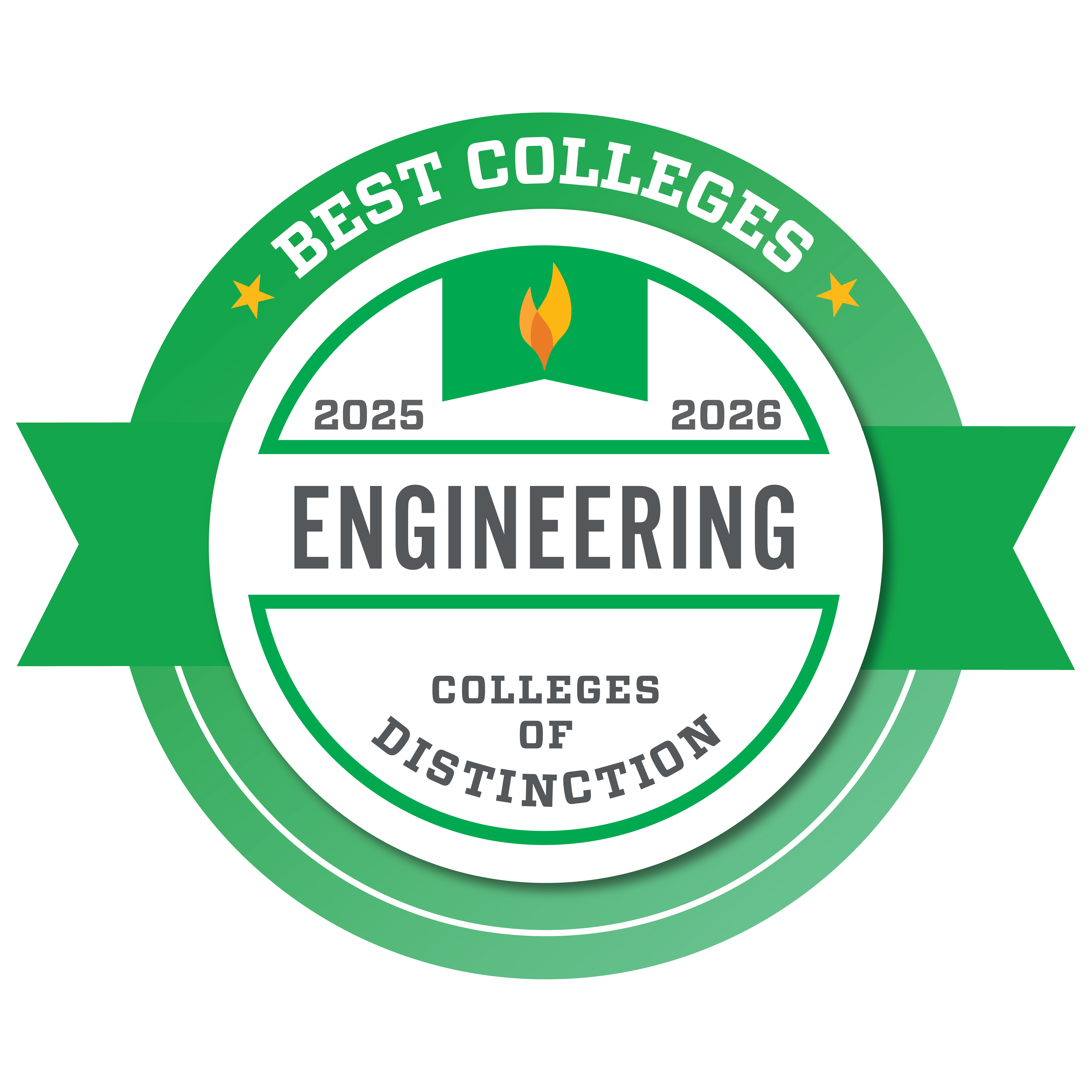
Chemical Engineering combines chemistry, physics, and engineering to design processes that turn raw materials into useful products, impacting industries like energy, biotechnology, and sustainability. You will learn to design breakthrough processes that transform industries and create potential life-changing materials.
Environmental Engineering combines chemistry, biology, and engineering to develop solutions that protect and improve the environment. You will learn to design systems that address critical issues such as water purification, waste management, and renewable energy, making a significant impact on the future of our planet.
Materials Engineering combines chemistry, physics, and engineering principles to develop and optimize materials that are essential to industries like electronics, aerospace, and healthcare. You will learn to create the next generation of revolutionary materials that enable new technologies and improve product performance.
Mechanical Engineering combines physics, material science, and engineering to design and create machines, systems, and structures that power industries like aerospace, automotive, and robotics. You will learn to develop innovative solutions that drive technological advancements and improve everyday life and shape our future.
Phone:
800-782-5549
Ext. 2500
Email:
admission@stvincent.edu
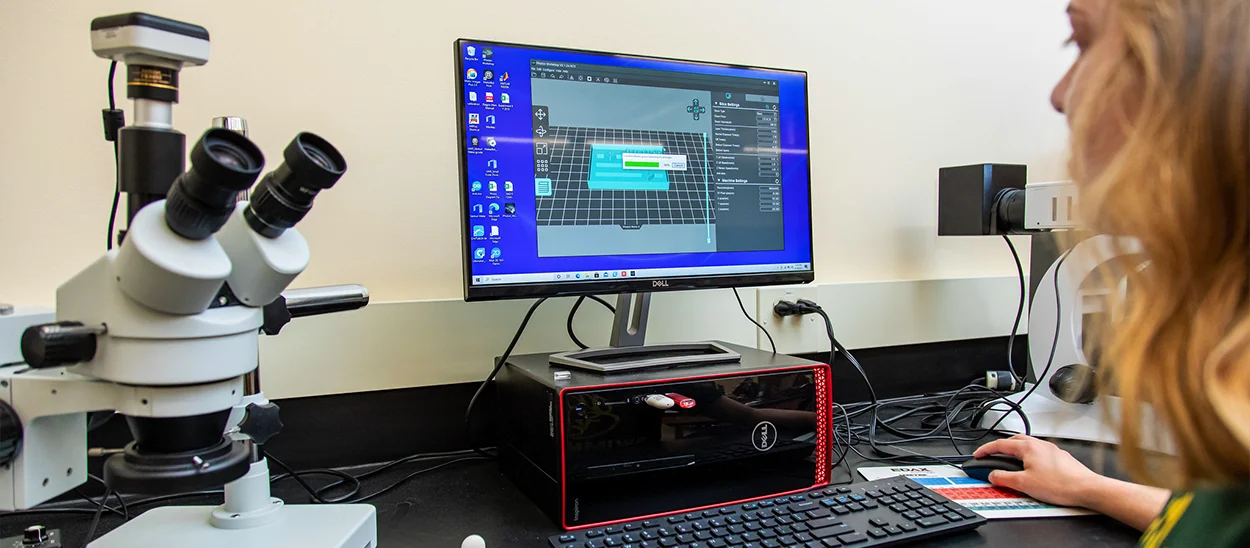
Our students engineer solutions at prestigious companies that often lead to full-time job offers before graduation.
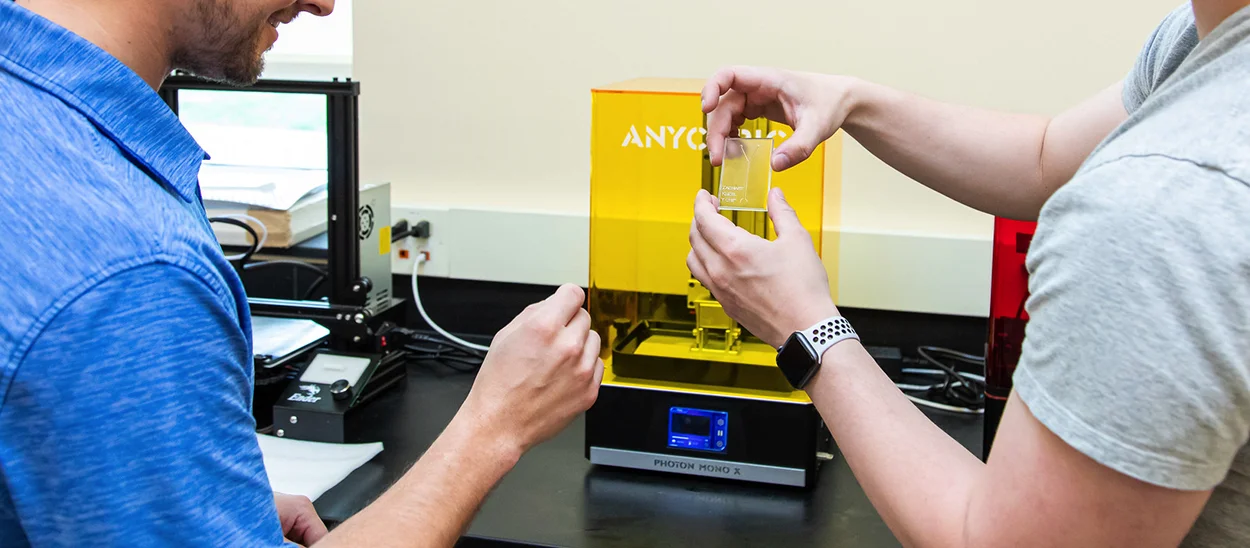
Starting freshman year, you’ll engage in hands-on design and prototyping with access to advanced technology like laser cutters and 3D printers. This early exposure fosters creativity, practical skills, and a deep understanding of the engineering process.
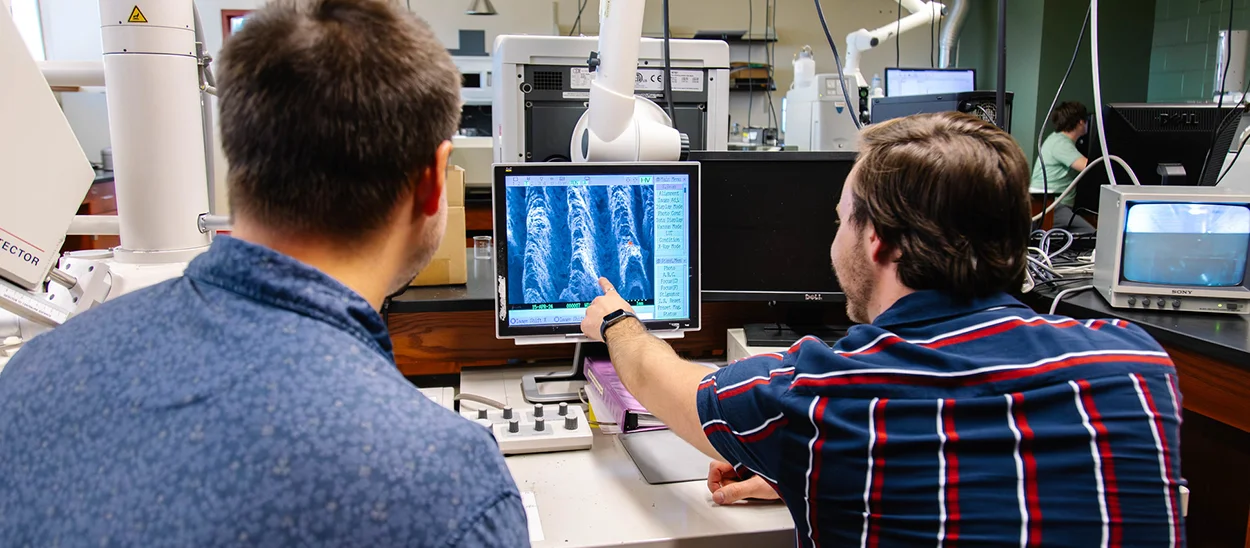
Don't just learn about engineering — contribute to it. Join faculty-led research projects that tackle real-world problems and get published before graduation. Our program offers exceptional grant-funded research opportunities, including collaborations with professors, peers, and other engineering institutions.
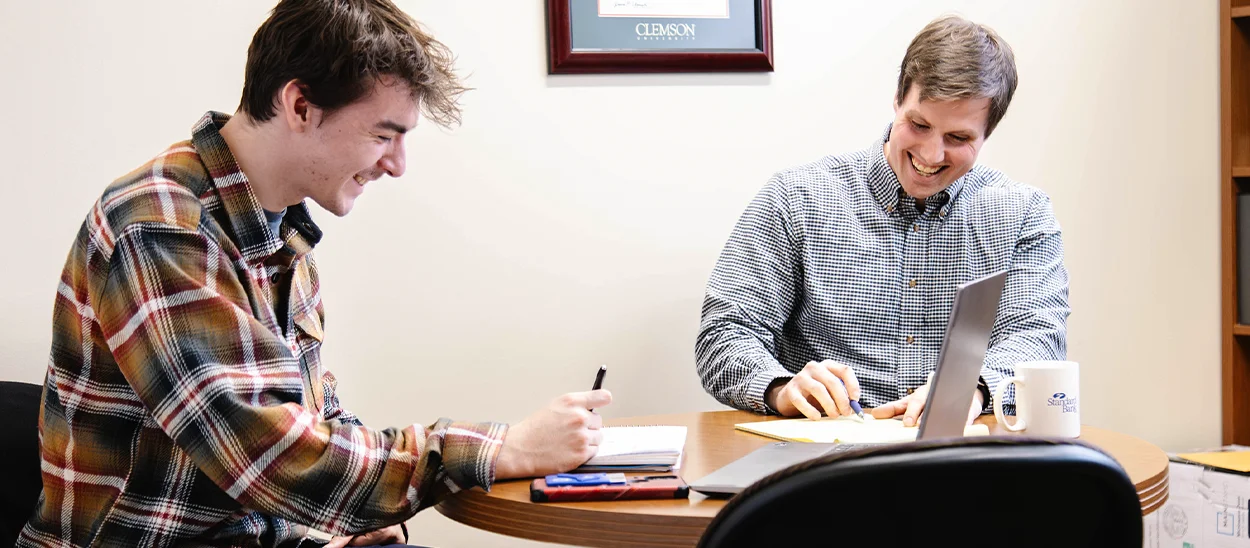
With our exceptional faculty-to-student ratio, you'll work directly with professors who know your name, understand your goals, and help you achieve them. From resume building to interview preparation, we provide comprehensive professional development that ensures you’ll stand out in the job market.
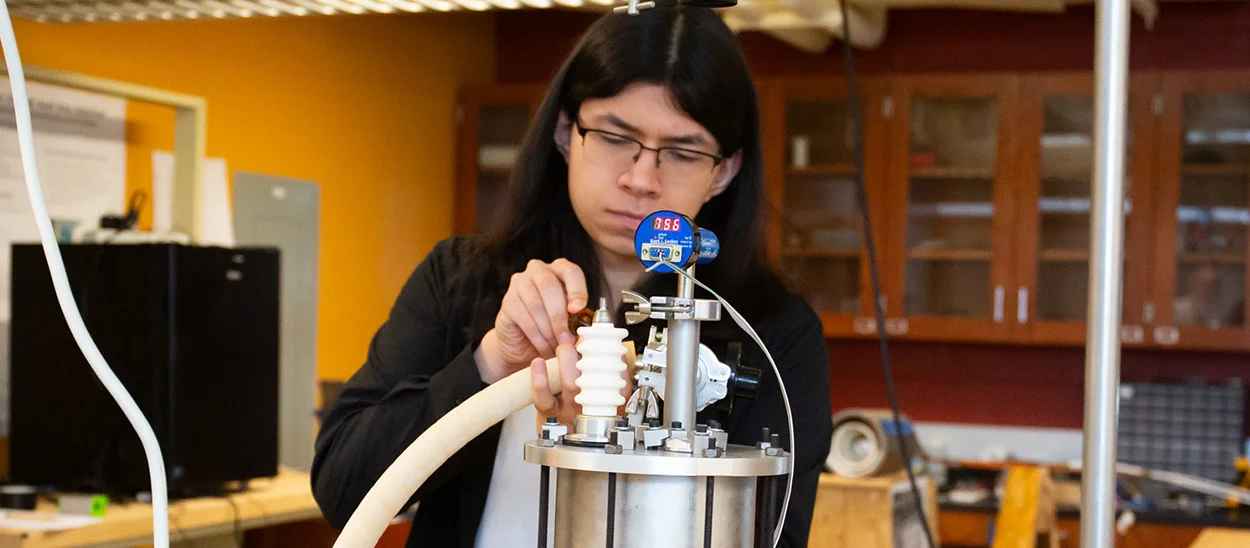
Engineering stands out as the highest-paying major, boasting an average starting salary of $76,740 (Forbes Advisor, 2024). With job growth projected to outpace the average from 2023 to 2033, particularly in sectors like infrastructure, oil, gas, robotics, and renewable energy, an engineering degree offers you a lucrative and future-proof career path.
The liberal arts core common to all Saint Vincent College degrees ensures that our students will be able to design ethical engineering solutions to local, national, and global problems with an understanding of the global and societal impact of the solutions. The engineering program provides excellent preparation for a variety of post-graduate opportunities, including immediate employment in an engineering field, enrollment in a graduate engineering program, and entry in another field such as medicine, law, or business, where the engineering education provides transferrable skills such as creative problem-solving and ethical decision-making.
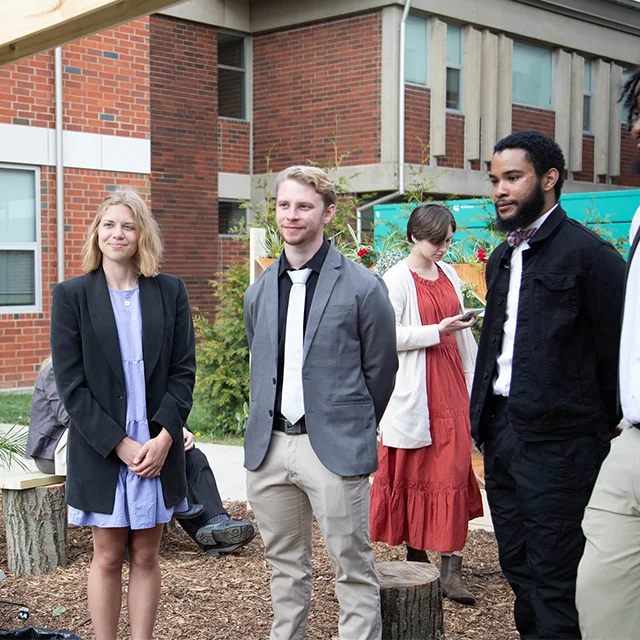
Alumni will go on to successful careers as:
Students in our engineering program have secured jobs and internships at a variety of companies in their field and enrolled in prestigious graduate schools
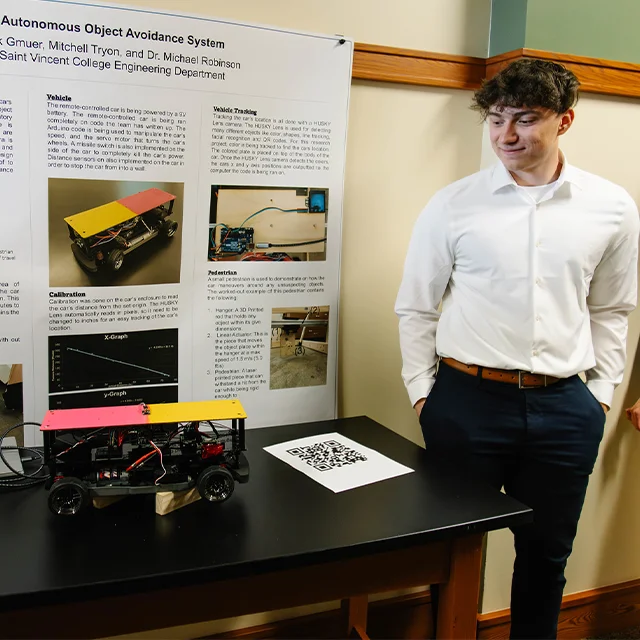

“The engineering program at Saint Vincent College offers a comprehensive understanding of engineering principles, which I actively apply in my current professional role. Additionally, it highlights the significance of interpersonal skills in a discipline where technical expertise and practical experience are paramount. At SVC, I honed my ability to articulate results, methodologies, and assumptions with clarity and precision, while also cultivating a collaborative spirit to effectively partner with colleagues in pursuit of our project objectives. The dedicated engineering faculty at SVC demonstrated a genuine commitment not only to my academic development but also to my career ambitions, providing invaluable support in securing internships and employment opportunities aligned with my interests.”
Sydney Green, C’18
Project Engineer, Westinghouse Electric Co.
The student must complete the requirements listed in the following categories:
Mathematics - 19 credits
Science - 12 credits
Engineering Core Requirements - 37 credits
Technical Elective - 3 credits
Students pursuing concentrations in chemical engineering, materials engineering, and mechanical engineering must take at least one three-credit course from the following list of science, mathematics, computer science, and engineering courses as a technical elective.
Students pursuing the environmental engineering concentration must take an engineering course as a technical elective.
Note that students must have the required prerequisites to take any of these courses. In addition, this technical elective cannot be satisfied by AP or IB credit, or by independent study or independent research courses.
Students must complete the requirements for one of the following engineering concentrations:
Chemical Engineering Concentration
Environmental Engineering Concentration
Materials Engineering Concentration
Mechanical Engineering Concentration
Our engineering majors will have the opportunity to put theoretical concepts learned in lecture classes into practice. The laboratories, workshops, and other hands-on activities prepare our students for various fields.
Engineering Graphics and Design: Introduction to engineering graphics and 3D design using SOLIDWORKS® covers basic engineering drawing conventions and terminology, fundamentals of part modeling, assembly modeling, and engineering drawings in SOLIDWORKS®. Design projects are an integral part of this course.
Junior Engineering Laboratory: This laboratory course gives you the opportunity to apply topics from the core engineering curriculum to real-world systems. You will use logical reasoning and fundamental engineering principles to design experiments and predict outcomes. In this course, you will also develop communication skills by writing technical reports and giving oral presentations.
Capstone Design Project Series: This is a three-semester design project sequence. You’ll begin by focusing on design team formation, project definition, engineering economics, and project feasibility. You will then transition to development, testing, and delivery of a solution to a design problem. Projects are geared towards solving real-world engineering challenges in industry and the local community.
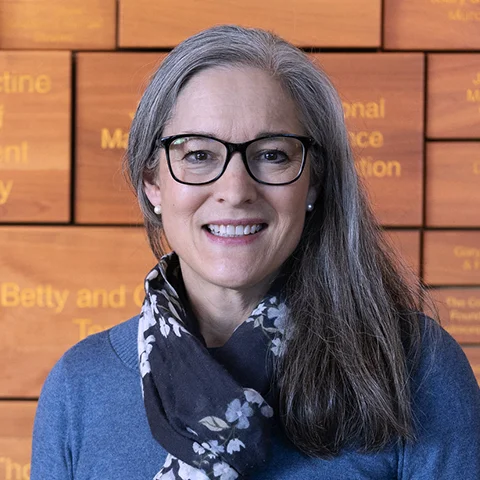
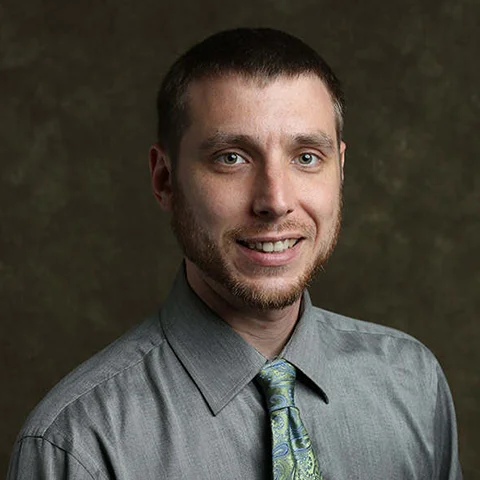

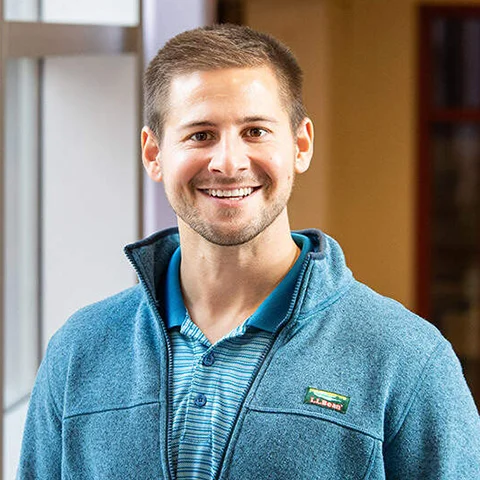
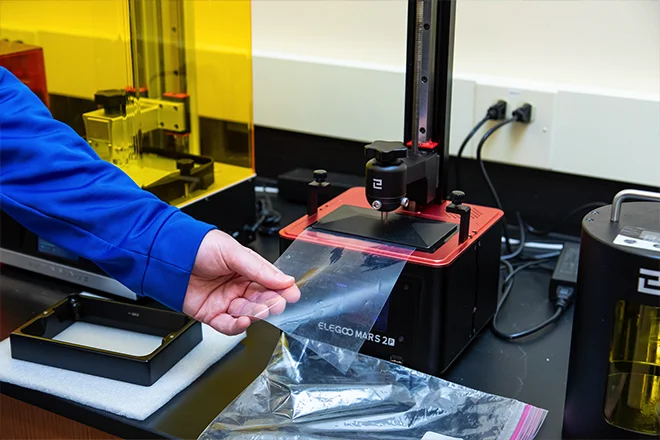
This state-of-the-art engineering laboratory is equipped with advanced tools and equipment to support a wide range of projects. It features laser cutters for precise material cutting, 3D printers (both filament and resin) for rapid prototyping, high-powered microscopes for detailed analysis, and mechanical testing equipment to evaluate the strength and durability of materials. This lab provides students with hands-on experience in using industry-standard tools and techniques, where students turn conceptual ideas into tangible innovations.
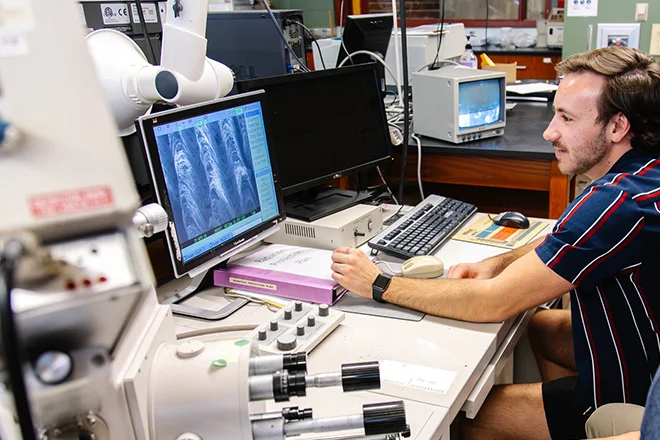
The engineering computing laboratory is seamlessly connected to the main engineering lab, offering a comprehensive environment for both theoretical and practical learning. This facility is exclusively accessible to engineering students via keycard access, ensuring a secure and dedicated space for their studies. It is equipped with high-performance computers and specialized software used in engineering design, simulation, and analysis, enabling students to push the boundaries of digital design while developing marketable skills.
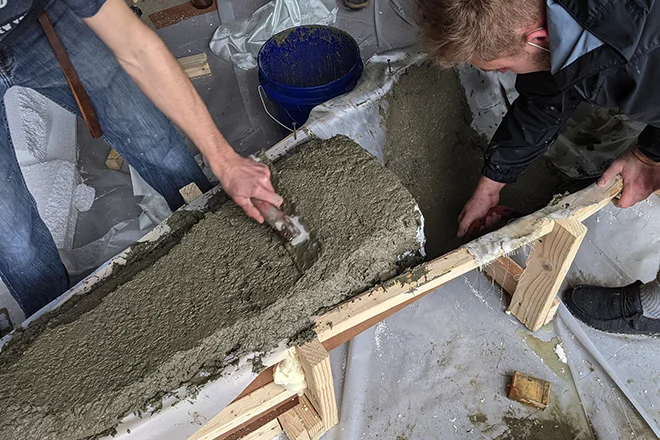
The workshop is a versatile space equipped with common woodworking and machining equipment, providing students with the tools they need to bring their designs to life. It includes saws, drills, lathes, and other essential machinery for cutting, shaping, and assembling materials. This workshop allows students to develop practical skills in fabrication and craftsmanship, bridging the gap between theoretical knowledge and real-world engineering excellence.
Engineering Program Educational Objectives
The objectives of the Engineering program are to produce graduates who, within a few years after graduation, will be able to:
Engineering Program Mission Statement
Following the Catholic and Benedictine liberal arts tradition of Saint Vincent College, the aims of the Engineering programs are:
Student Outcomes
The Engineering curriculum is designed so that students can attain the following outcomes at the time of graduation:
Enrollment and Graduation Data
|
Academic
Year
|
Enrollment in
Engineering Program*
|
B.S. in Engineering
Graduates
|
| 2019-20 | 7 | 1 |
| 2020-21 | 33 | 10 |
| 2021-22 | 43 | 10 |
| 2022-23 | 49 |
*The B.S. in Engineering Program was introduced in 2019
|
Academic
Year
|
Enrollment in
Engineering Science Program**
|
B.S. in Engineering
Science Graduates
|
| 2013-14 | 4 | 0 |
| 2014-15 | 30 | 3 |
| 2015-16 | 38 | 2 |
| 2016-17 | 42 | 8 |
| 2017-18 | 50 | 6 |
| 2018-19 | 57 | 18 |
| 2019-20 | 37 | 8 |
| 2020-21 | 8 | 3 |
| 2021-22 | 2 | 2 |
| 2022-23 | 1 |
**The B.S. in Engineering Science program is being phased out. This program was not available to newly admitted students as of Fall 2019.
|
Academic
Year
|
Enrollment in
Math/Engineering Program
|
B.A. in Math/Engineering
Graduates
|
| 2013-14 | 35 | 11 |
| 2014-15 | 34 | 12 |
| 2015-16 | 35 | 1 |
| 2016-17 | 34 | 12 |
| 2017-18 | 31 | 5 |
| 2018-19 | 32 | 6 |
| 2019-20 | 24 | 6 |
| 2020-21 | 25 | 6 |
| 2021-22 | 21 | 3 |
| 2022-23 | 16 |
Phone:
800-782-5549
Ext. 2500
Email:
admission@stvincent.edu